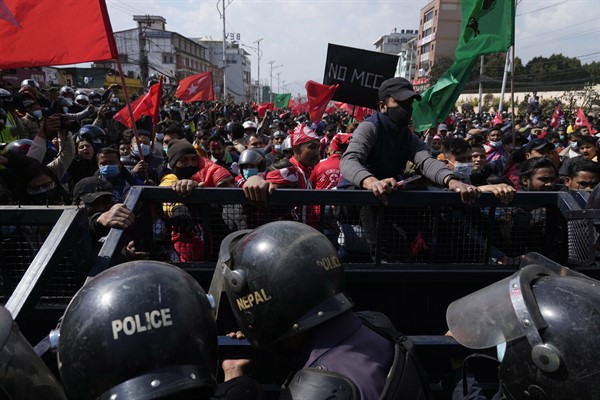Nepal’s recent political turmoil put its internal divisions in the spotlight and raised questions of where the country stands 16 years after the end of its civil conflict and five years after the first elections held under its new federalist constitution. Ostensibly a dispute over whether or not to accept a U.S. aid package—a $500 million Millennium Challenge Corporation, or MCC, grant first initialed in 2017—the crisis saw years of indecision, polarization, disinformation and recently violent protests before Parliament eventually ratified the grant in February. The protracted ordeal over what was seemingly a straightforward development grant exposed deep cracks in the state of Nepali politics and laid bare its fragility in balancing the brewing geopolitical tension at its doorstep between China, India and the U.S.
But as much as a dispute over Nepal’s geopolitical orientation, the standoff highlighted the stalled progress the country has made in consolidating its democracy, while underscoring the challenges it faces moving forward. How Nepal responds to these challenges in the year ahead could make the difference between entering a new political era or returning to repeated cycles of instability.
This year is set to be a big one in Nepali politics. From May to November, the Himalayan nation will carry out its second electoral cycle—including national, provincial and local elections—under its new constitution, which ushered in the transition from a unitary to a federal governance system. But while the country remains on course to achieve a democratic milestone, its resolve to contain political uncertainty relating to its newly federalized system of government, as well as the destabilizing effects of the pandemic, will likely be tested.

